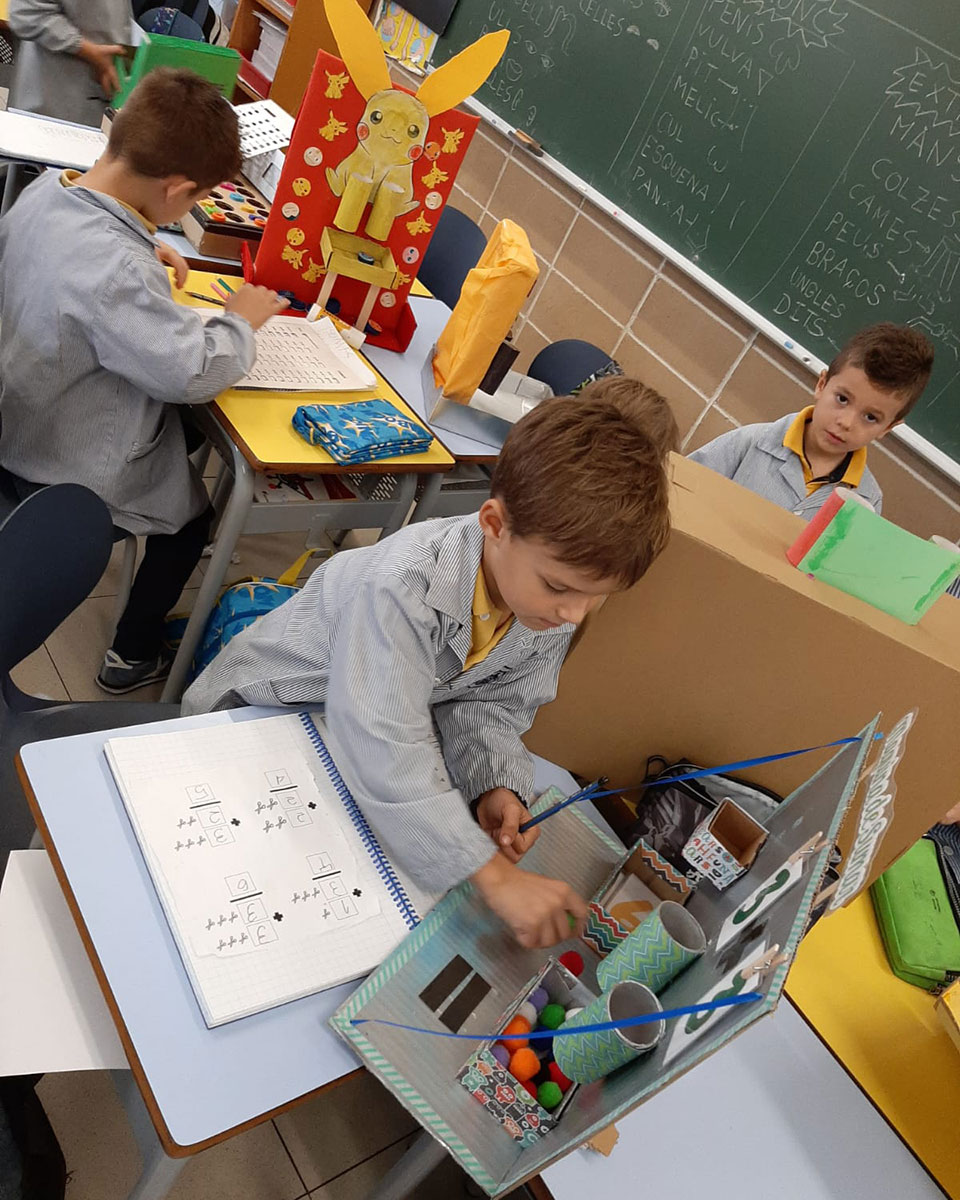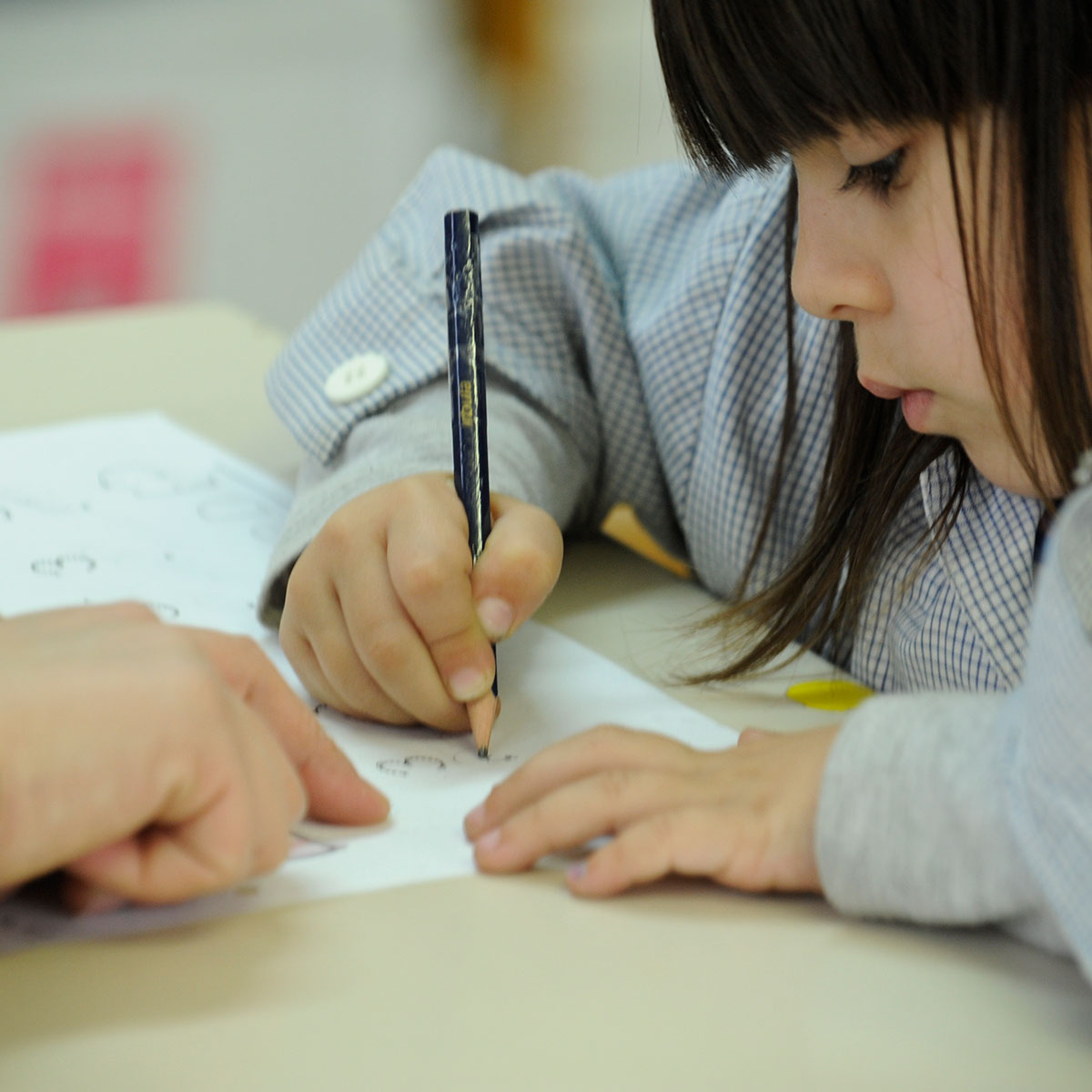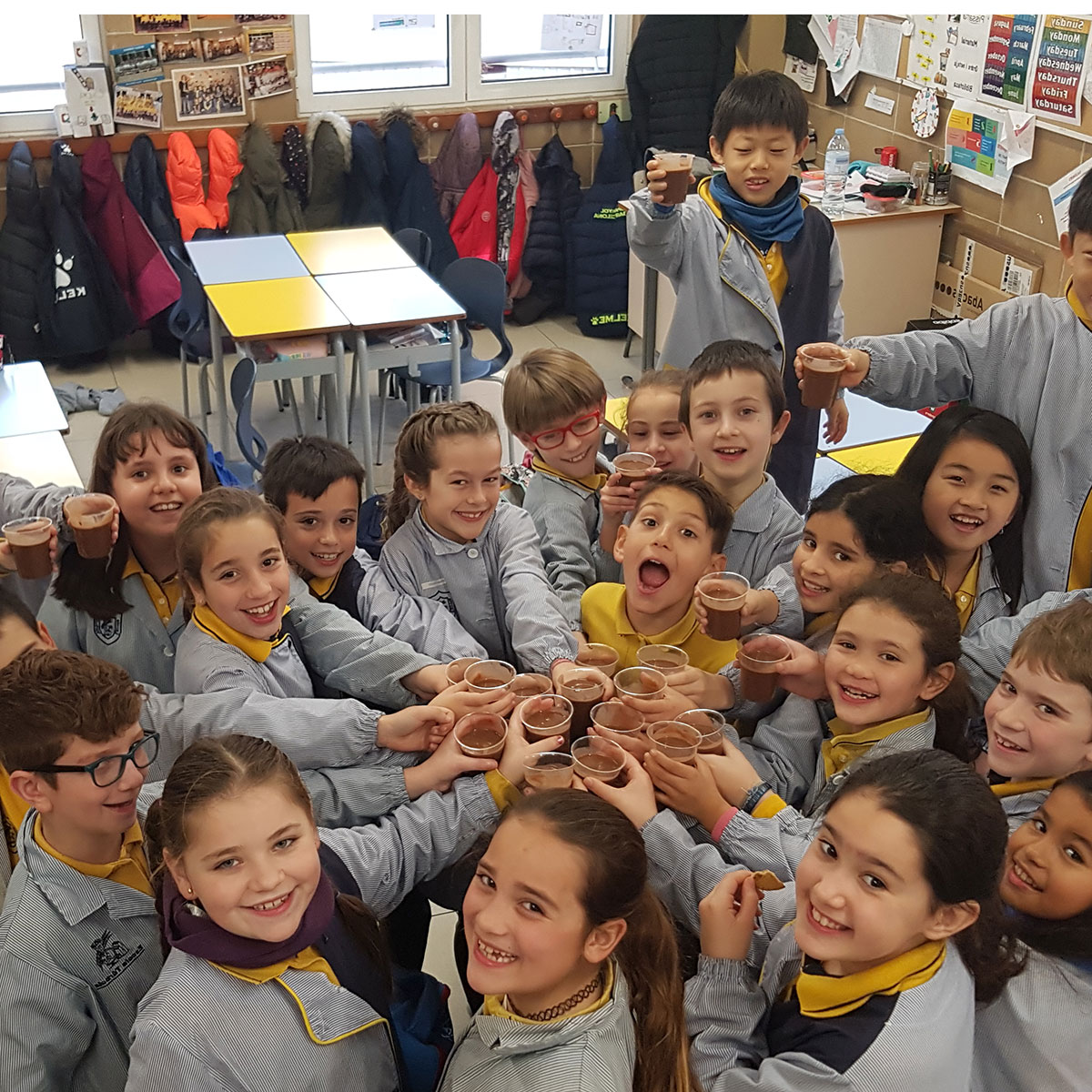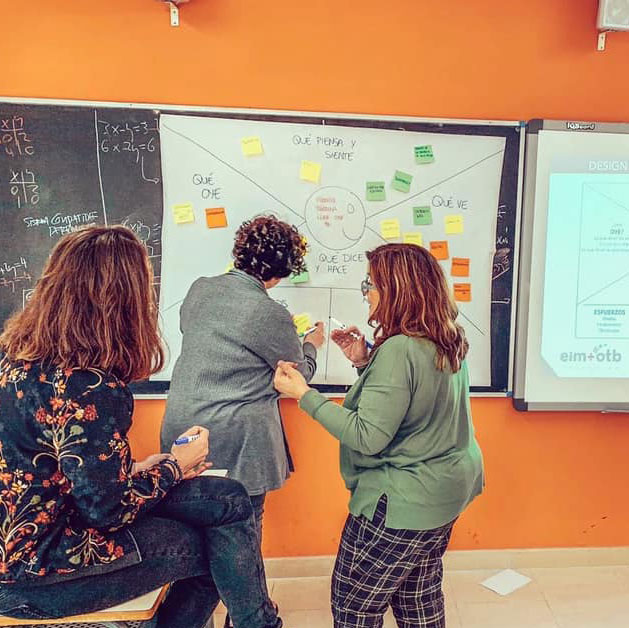PRIMARY EDUCATION AT TÚRBULA SCHOOL
Primary Education
This is the stage they buy from 6 to 12 years old, structured in 6 school years. It is the time when the foundations of human and social formation are laid, with the improvement of autonomy. The moment they learn to develop skills, social skills.
EMOTION ACTIVATES LEARNING
How we learn?
The student as an active protagonist of learning, a student who is excited to research and discover. Encouraging cooperative work methodology, projects, CLIL and TAC resources, robotics, Flipped Classroom, Gamification. Motivated with a desire to meet new challenges.
Introducing aquatic activities (swimming pool) within the curriculum as we know that physical exercise improves executive attention and also memory directly related to the academic performance of students.
Doing splits in PRI 1 in learning to read and write. Working on mathematics in the Upper Cycle in new learning spaces (50 students in the same space with 4 teachers)
We like this stage to be an important part of your day-to-day life:
- We want them to want to learn new things.
- Get excited about new experiences.
- Have very good teammates and friends
- Enjoy researching, creating, living together and sharing.
We believe that our students are a very important part of our school …
- Because we like to share new projects with children.
- Because we care how they feel and what they think.
- Because we want to learn from all of them
Family-school relationship
We walk together
For the team it is very important to have a relationship with the families, to have a direct and personal relationship with the need for us to work together on a common project, which is to accompany the students as to whole, responsible and judicious beings.
This collaboration and alliance with the Educational Project is essential.
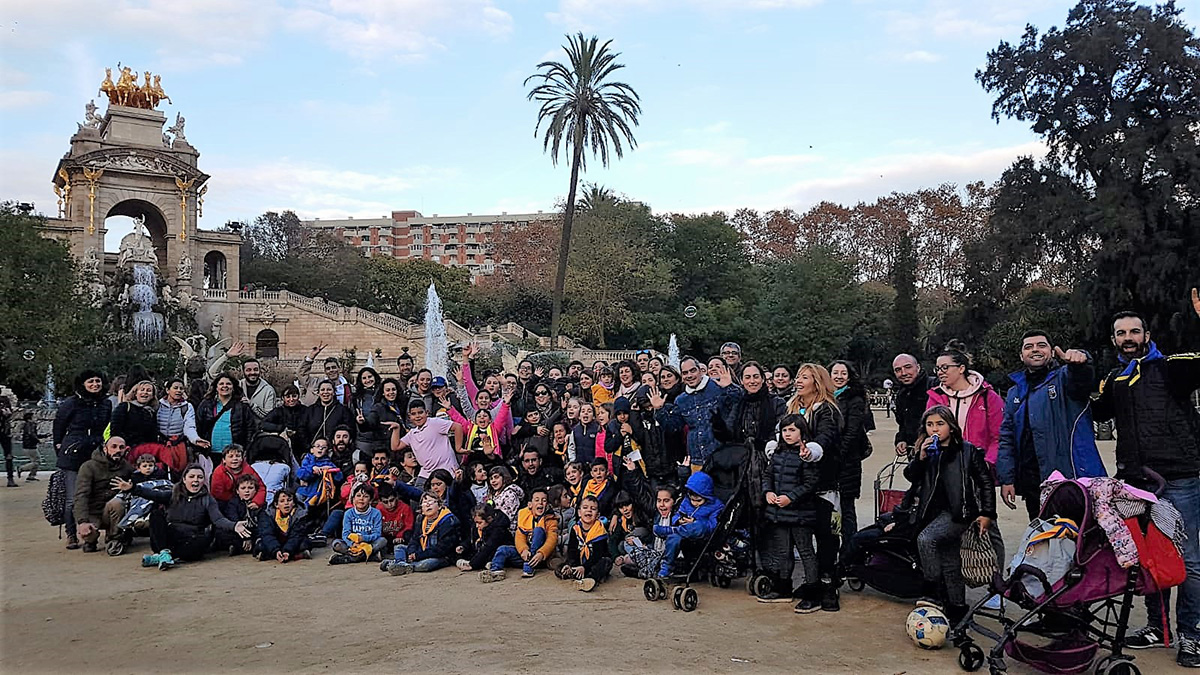
Foreign Language Learning
Multilingual Education
Implementation and presentation of Primary students in English curricular hours together with the PILE and GEP projects that relate the language with other curricular areas (Plastic Education) through the CLIL methodology.
The possibility of learning through native conversation assistants that keep children in direct contact with language and that facilitate comprehension and fluid expression.
valuing needs and concerns
Tutorial action
An important part of the follow-up of the students is the individualized tutoring in which the development of the personal work takes shape as well as valuing the needs and the preoccupations of each one of them and them.
treatment of diversity
We are all the same, we are all different
The fact that the Center has Intensive Inclusive Schooling Support (SIEI) makes us very sensitive to attention to diversity. Students, with this coexistence, are respectful of the differences and the particularities of each one, which helps the relationship and acceptance of individuals.
Aware of individuality
Teaching staff
Staff characterized by their human category that allows them to establish a relationship of trust with students and families.
Aware of the individuality of each child and with the ability to guide their learning in a personalized way. Personally involved in the integral training of the student. Committed to innovation projects. Able to get excited every day.

